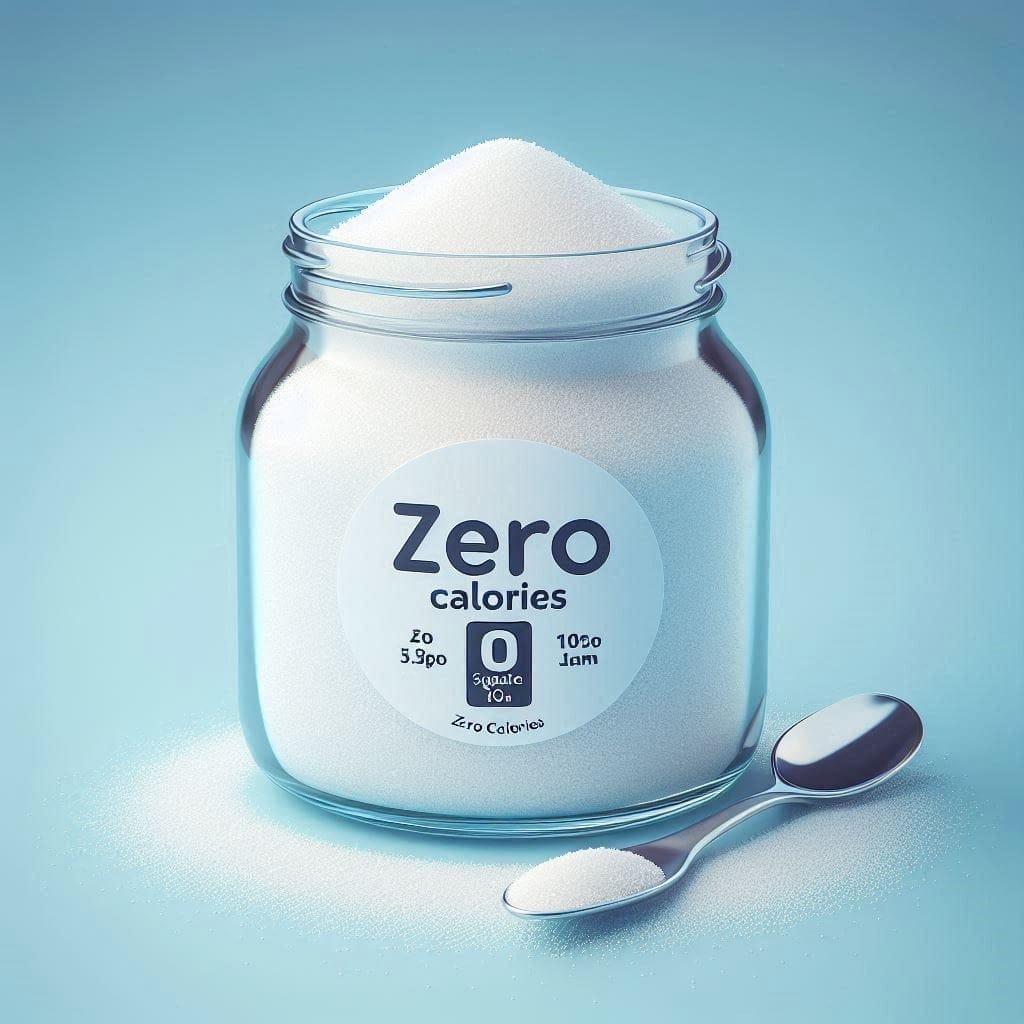Os adoçantes artificiais são frequentemente promovidos como alternativas saudáveis ao açúcar, ajudando na redução de calorias e no controle do peso. Mas será que eles são realmente seguros?
Benefícios Propostos dos Adoçantes Artificiais
- Redução de Calorias: A substituição do açúcar por adoçantes artificiais pode ajudar na redução da ingestão calórica, auxiliando na perda de peso .
- Controle de Diabetes: Adoçantes artificiais não aumentam os níveis de glicose no sangue, sendo uma alternativa para diabéticos .
- Saúde Dental: Diferente do açúcar, os adoçantes artificiais não causam cáries, protegendo a saúde dental .

Evidências Científicas
A literatura científica sobre adoçantes artificiais é controversa. Enquanto alguns estudos mostram benefícios na perda de peso e controle do diabetes, outros levantam preocupações sobre possíveis efeitos negativos na saúde metabólica e intestinal . Estudos apontam que, embora possam ajudar na redução de calorias, os efeitos a longo prazo dos adoçantes artificiais ainda são objeto de debate .
Considerações Importantes
- Possíveis Efeitos Adversos: Alguns estudos associam adoçantes artificiais a alterações na microbiota intestinal e aumento do risco de obesidade .
- Regulamentação e Segurança: A segurança dos adoçantes artificiais é regulamentada por órgãos como a FDA, mas os efeitos a longo prazo ainda são debatidos .
- Consumo Moderado: Como qualquer substância, o consumo de adoçantes artificiais deve ser moderado. Estudos recomendam o uso criterioso, destacando a necessidade de mais pesquisas para determinar seus impactos completos
Conclusão
Os adoçantes artificiais podem ser benéficos para algumas pessoas, especialmente para quem precisa reduzir a ingestão de açúcar, mas devem ser consumidos com cautela. Mais pesquisas são necessárias para compreender completamente seus efeitos a longo prazo.
Referências
- Malik, V. S., & Hu, F. B. (2019). Sweeteners and Risk of Obesity and Type 2 Diabetes: The Role of Caloric vs. Noncaloric Sweeteners. Annual Review of Public Health, 40, 49-65.
- Rios-Leyvraz, M., & Montez, J. (2019). Health Effects of the Use of Non-Sugar Sweeteners: A Systematic Review and Meta-Analysis. British Medical Journal, 364, k4718.
- Gardner, C., Wylie-Rosett, J., Gidding, S. S., Steffen, L. M., Johnson, R. K., Reader, D., & Lichtenstein, A. H. (2012). Nonnutritive Sweeteners: Current Use and Health Perspectives: A Scientific Statement from the American Heart Association and the American Diabetes Association. Circulation, 126(4), 509-519.
- Liao, H. Y., Chen, Y. L., Chen, H. C., Lin, Y. T., & Chien, Y. C. (2016). Effects of Sugar Substitutes on Dental Caries: A Review. Journal of Dental Sciences, 11(3), 264-269.
- Azad, M. B., Abou-Setta, A. M., Chauhan, B. F., Rabbani, R., Lys, J., Copstein, L., … & Zarychanski, R. (2017). Nonnutritive Sweeteners and Cardiometabolic Health: A Systematic Review and Meta-Analysis of Randomized Controlled Trials and Prospective Cohort Studies. Canadian Medical Association Journal, 189(28), E929-E939.
- Swithers, S. E. (2013). Artificial Sweeteners Produce the Counterintuitive Effect of Inducing Metabolic Derangements. Trends in Endocrinology & Metabolism, 24(9), 431-441.
- Toews, I., Lohner, S., Küllenberg de Gaudry, D., Sommer, H., & Meerpohl, J. J. (2019). Association Between Intake of Non-Sugar Sweeteners and Health Outcomes: Systematic Review of Randomized Controlled Trials and Observational Studies. British Medical Journal, 364, k4718.
- Nettleton, J. E., Reimer, R. A., & Shearer, J. (2016). Reshaping the Gut Microbiota: Impact of Low Caloric Sweeteners and the Link to Insulin Resistance? Physiology & Behavior, 164(Pt B), 488-493.
- Magnuson, B. A., Roberts, A., & Nestmann, E. R. (2017). Critical Review of the Current Literature on the Safety of Aspartame and Sucralose. Regulatory Toxicology and Pharmacology, 89, 227-240.
- Sylvetsky, A. C., & Rother, K. I. (2018). Nonnutritive Sweeteners in Weight Management and Chronic Disease: A Review. Obesity, 26(4), 631-640.






